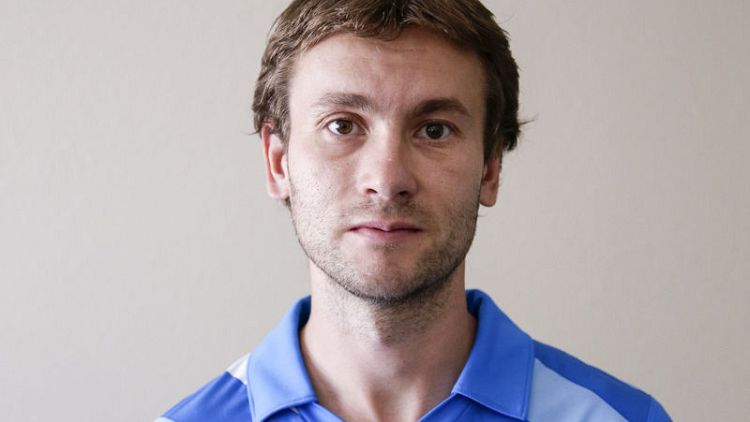By Karolos Grohmann
BUENOS AIRES (Reuters) - The World Anti-Doping Agency's decision last month to reinstate the Russian anti-doping agency (RUSADA) showed flexibility, said Russian whistleblower Vitaly Stepanov on Friday.
Stepanov, a former employee of RUSADA and his wife, track and field athlete Yulia, went public about doping in Russia back in 2014 triggering an avalanche of revelations.
Those led to a string of international investigations and a three-year ban of RUSADA, the country's athletics team and eventually the Russian Olympic team at the 2018 Winter Olympics where some Russians competed as neutrals.
The Stepanovs had gone public with their revelations after WADA at the time had failed to act on their information.
Since the scandal broke, including the Sochi 2014 Winter Olympics drugs affair as revealed by another Russian whistleblower, the Stepanovs, who fled from Russia for fear of their lives, have been working closely with WADA.
"My personal feeling about the reinstatement of RUSADA is the fact that WADA has shown the ability to be flexible and negotiate with the side that committed sports crimes," Vitaly Stepanov told an Olympic forum via Skype.
The couple have been living in an undisclosed location in North America for fear of Russian reprisals. The Stepanovs have been branded as traitors in their home country.
"Now I hope WADA will now fix the situation of many athletes who have been robbed," Stepanov said.
RUSADA was suspended in 2015 after an independent WADA report carried out by Canadian lawyer Richard McLaren outlined evidence of massive state-backed, systematic doping and cover-ups in Russian sport, allegations which Moscow denied.
But WADA readmitted it last month despite not fulfilling all criteria, saying failure to allow access to stored samples in the Moscow laboratory by year's end would lead to a renewed ban.
The decision was sharply criticised by some athletes and anti-doping agencies.
Stepanov said it was not WADA that needed to act now but the international federations. Only Russia's athletics federation remains banned as a result of the scandal.
"The international federations are doing little to fight doping in Russia," Stepanov, sitting next to his wife, said.
Although Russia has pledged to co-operate with global sports bodies to curb the use of banned performance-enhancing drugs, the authorities have vehemently denied the existence of state-sponsored doping cover-ups.
"Those that run and govern sports must stop making deals that cover up drugs use," Yulia Stepanova said.
"I would like to apologise for my past. Unfortunately I cannot change it. I cheated and now I am talking about it. I regret not speaking up sooner.
"Athletes that cheat believe they can get away with cheating. This was put in my head by people that surrounded me. Coaches, officials, police and athletes," she said.
(Reporting by Karolos Grohmann; editing by Martyn Herman)
